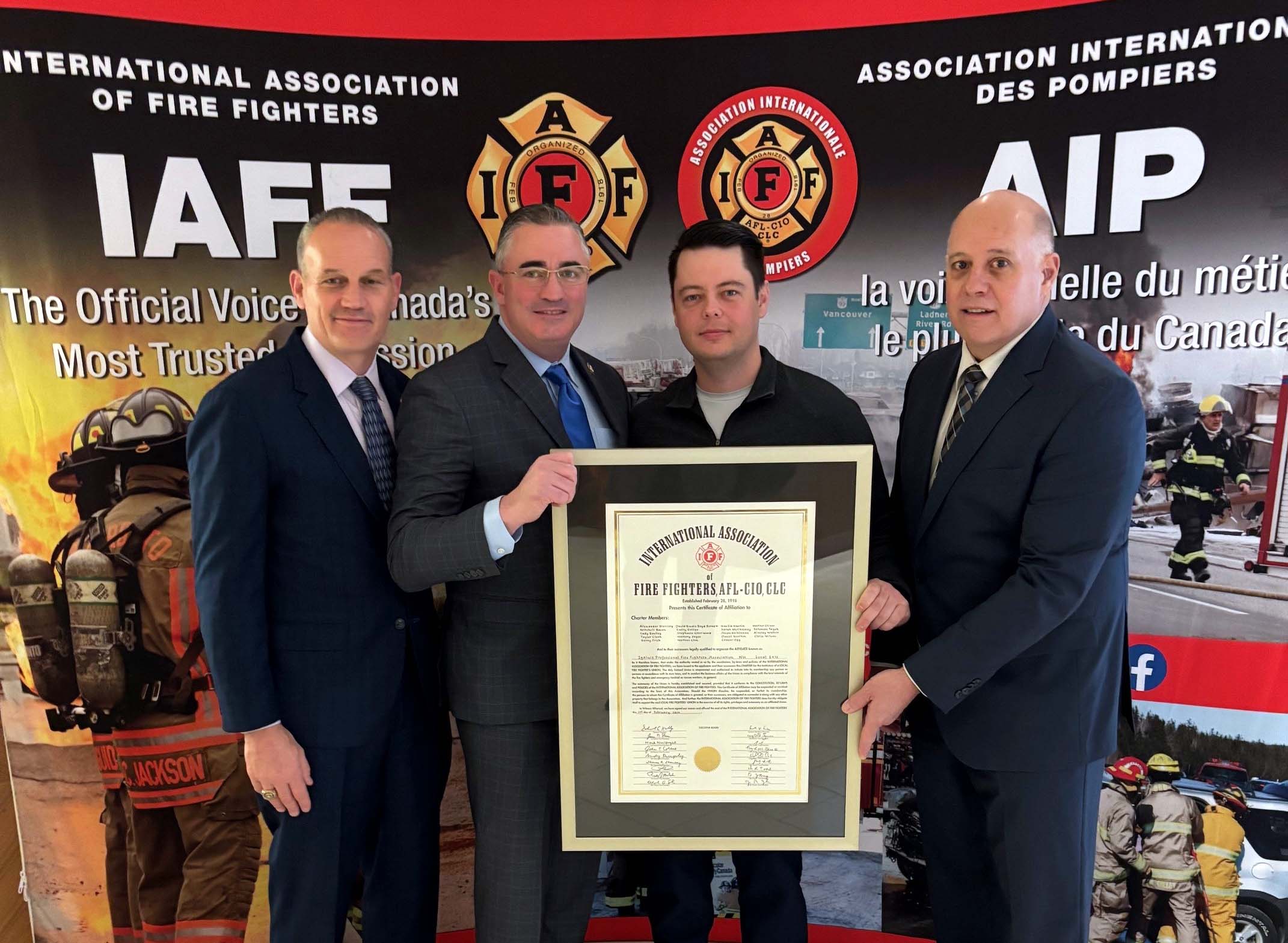Efforts by the Rhode Island State Association of Fire Fighters (RISAFF), along with support from state Representative Michael Morin, helped pass legislation banning organohalogens, a flame retardant in upholstered furniture and other consumer products. Morin, who is also a member of Woonsocket, RI Local 732, was the chief sponsor of the bill.
The law prohibits the sale of any bedding or furniture containing more than trace amounts of organohalogen. It carries a fine of $5,000 for the first violation and $10,000 for any subsequent violations. Companies that make these products have until July 1, 2019, to become compliant with the new law.
“We work hard to keep our brothers and sisters safe. With the passage of this bill, our members will be at a reduced risk of contracting cancer on the job,” says Joe Andriole, RISAFF acting president who credits Representatives Morin and Steve Casey who are both members of Woonsocket Local 732 and the RISAFF’s lobbyist Paul Velatte with generating support for the legislation.
“I asked to be the lead sponsor of the house bill because I have known too many fire fighters and family members diagnosed with cancer. I know the harm these flame retardants can do,” says Morin. “Of all the bills I have worked on since being elected to office, this one was the most important to me.”
Morin is a 30-year veteran of the Woonsocket Fire Department and member of Local 732. He held several Local 732 Executive Board positions, including president, before he was elected state representative in 2014 with the support of FIREPAC. While he does not hold a union office, he is still a member and continues to serve as a deputy state fire marshal in Woonsocket.
The chemical industry’s chief trade group, the American Chemistry Council, put up strong opposition to the bill, claiming that the retardants’ role in preventing fires is too valuable.
Representative Morin asked Boston Local 718 member Joseph Fleming, an expert on the risks of flame retardants, to provide testimony explaining why the chemical company’s lobby’s claims were inaccurate. Fleming provided data showing flame retardant’s do little to prevent fires.
The legislation passed both the state House and Senate with no issues. However, Rhode Island Governor Gina Raimondo received heavy pressure from the chemical lobby. But rather than veto the bill, Governor Raimondo let the bill become law without her signature.
“We are proud to have one of our own in the state House to be our voice,” says Jeff Hanault, president of Woonsocket Local 732. “The passing the flame retardant bill is a tremendous step in the right direction for protecting the health and well-being of our members and the public we serve.”
During the 2014 IAFF Convention in Cincinnati, delegates passed a resolution to push for the federal and state ban of flame retardant chemicals used in household furniture and other items. The hope is that if these carcinogens aren’t being released into the air as they burn, fewer fire fighters will develop cancer.
Rhode Island is the second state to ban organohalogens. Maine passed a similar law earlier this year.


